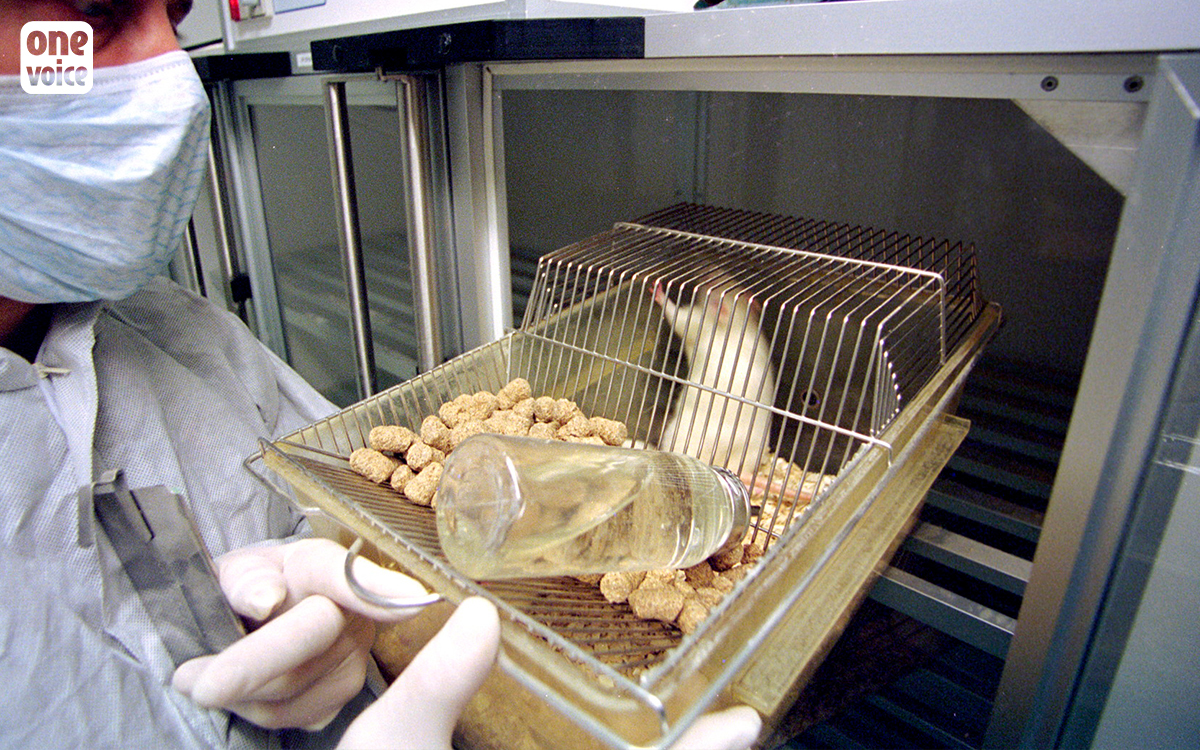
Coronavirus vaccines: Not thanks to, but despite animal experiments
Unnecessary animal experiments do not increase vaccine safety. One Voice shares the point of view of its German partner from the the ECEAE, the European Coalition for the End of Animal Experiments: Doctors Against Animal Experiments.
The animal research industry claims that animal experiments were decisive for the alleged success of the coronavirus vaccines. In fact, the opposite is true: the rapid development of COVID-19 vaccines is the latest evidence of how inefficient and unnecessary animal experiments are. One Voice’s partner in the ECEAE, the European Coalition for the End of Animal Experiments, the German charity organization Doctors Against Animal Experiments, calls for a paradigm shift towards human-relevant, non-animal technologies, so in the future the development of important drugs and vaccines can be faster, safer and more reliable.
During the last few weeks, the manufacturers of three vaccine candidates against COVID-19 reported initial successes in large-scale studies involving thousands of people. Many experts advise cautious optimism, as these are preliminary results and the exact scientific data have not yet been published. However, this does not prevent some pro-animal experiment advocates from ascribing the expected success of the vaccines to animal experiments. A closer examination makes it clear that these animal studies have neither contributed to the development nor improved the efficacy of these vaccines.
Normally, it is required by law that all drug and vaccine candidates are tested in a whole range of animal experiments before the first human test. Since the usual animal experiments are too lengthy and experience has shown that they are too unreliable for the current COVID-19 crisis, some animal experiments were shortened, skipped or carried out simultaneously with the tests on humans. “The vaccine candidates from the German pharmaceutical company BioNTech and the American corporation Moderna were tested on monkeys only after hundreds of human subjects had been injected with the vaccines. BioNTech tested four vaccine candidates on humans and, based on the collected data, opted for the now-famous vaccine candidate. This makes the results of the later monkey experiments completely obsolete“, explains Dr Dilyana Filipova, a scientist at Doctors Against Animal Experiments. The vaccine candidates were tested on mice and rats shortly before the first human trials in order to get regulatory approval for the subsequent human testing. However, a protective effect against the coronavirus infection could not be shown, since neither mice nor rats can be naturally infected with the virus.
«The fact that animal experiments were carried out because of outdated laws is no proof of their alleged indispensability and necessity.»Dre Dilyana Filipova
It is not surprising that animal experiments were not given high priority in the development of drugs and vaccines against COVID-19, because approximately 95% of all drugs that work perfectly well in animals fail in humans. Also, as far as we know today, there are no other animal species that develops the complex COVID-19 symptoms observed in humans. “While some proponents of animal experiments make fearful claims that there would be no COVID-19 vaccine without animal experiments, the very rapid development of several corresponding vaccines up to the present advanced stages was only possible because many of the otherwise common animal experiments were skipped“, says Filipova. The need for and development of animal-free, human-relevant research methods are increasing worldwide. At present, 10 human mini-organs, so-called organoids, or tissues can be infected with the SARS-CoV-2 virus, providing important information about the viral interactions with the human organism. A program to test coronavirus vaccines using multi-organ chips was recently launched in the USA. Complex computer models are also used to analyze the presumed effectiveness of repurposed drugs against COVID-19and to evaluate vaccine candidates. “Many important insights about the coronavirus were gained in these models. Ultimately, the development of the vaccine candidates celebrated today is based on such methods and patient data”, said Filipova.
Less than 1% of the public funding in Germany is invested in these modern, human-relevant methods, the remaining 99% are wasted on animal experiments. “We demand that the funding gets redeployed and that non-animal technologies become legally recognized as test methods in drug development instead of outdated animal experiments. This is the only way we will be able to develop effective and safe drugs and vaccines faster and more reliably”, says Filipova.
Resources:
- Jarrod Bailey: A ‘shortage’ of animals for labs will help, not hinder, a COVID-19 research. Pittsburgh Post-Gazette, 18.11.2020
- Pfizer and BioNTech announce data from preclinical studies of mRNA-based vaccine candidate against covid-19. Pfizer, 09.09.2020
- Covid-19. BioNTech